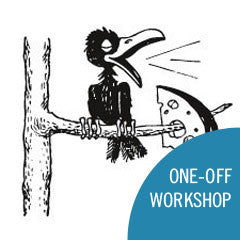
Globalisation
£14.95
As a theme for KS3 drama, globalisation might seem too complex and challenging, but in a year in which the Make Poverty History campaign won so much support from young people, there is more need than ever for schools to look outward. The drama structures in the following scheme of work are aimed at opening young people’s eyes to the extent to which they live in a global society, and the consequences and implications of this for their own lives and for children growing up in other parts of the world. Many drama departments contribute to citizenship education at KS3 and the scheme could also form part of a crosscurricular scheme with geography or humanities.
In its present form, however, it is expected that it will be delivered as part of an overall drama curriculum. It therefore includes a broad range of drama strategies aimed at developing the students’ drama skills while they explore different aspects of the theme. There are opportunities for in-class performance built in, and I like the students to share what they have learnt by creating a short performance for other classes in the school.
The lessons focus on one particular industry, shoe-making, and aim to explain some of the economic factors that have driven globalisation forward in the context of the global footwear industry. The companies in the scheme of work are entirely fictional but the difficult questions and decisions within it are real. Globalisation affects many other areas of world trade and this scheme could easily be adapted to explore other commodities such as coffee or electronics. The scheme asks students to question the fairness of a global economy. Through the drama activities, the students gain an imaginative insight into how decisions are made and their effects on individuals.
However, the scheme is not relentlessly critical and aims also to introduce ideas about ways in which individuals and groups can work against exploitation and injustice. I have taught the scheme over the last four years in slightly different forms, both in the context of an international school in Belgium, where many parents were employed by multinational companies, and in an independent school in the UK.
In both, students have been very positive in their response, taking part energetically in the tasks and often relating their own knowledge of the world to the fictional setting of the drama. I began the scheme as a KS4 piece for the Edexcel GCSE course with much less teacher involvement in the drama, but as I was looking for drama schemes to deepen the experience of KS3 drama, I realised its potential and have taught it to both Year 7 and 8 classes.
Learning objectives:
- To consider the reasons why so many of the things we buy are made so far away
- To understand the difficulties facing British manufacturing companies
- To become familiar with the idea of out-sourcing
- To use role-play with confidence, with the ‘mantle of the expert’
- To demonstrate how in the global economy many small firms are bought by larger international corporations
- The use of the ‘conscience alley convention’
- To play a range of roles within the drama structure
- To learn about the ways in which shoes are marketed
- To use a range of drama skills to create a polished performance
- To learn about the economic downside of globalisation
- To develop drama skills by introducing group still-image work, small-group improvisation, and cross- cutting
- To learn about trade unionism and to explore the ways in which unions can assist workers in obtaining acceptable working conditions
- To deepen experience of whole-group improvisation with teacher-in-role
- To discuss in a dramatic context expectations of the relationship between employers and employees
- To create an agenda to focus discussion
- To develop negotiating skills
- To work on small-group improvisation leading to performance
Number of Lessons: 6


